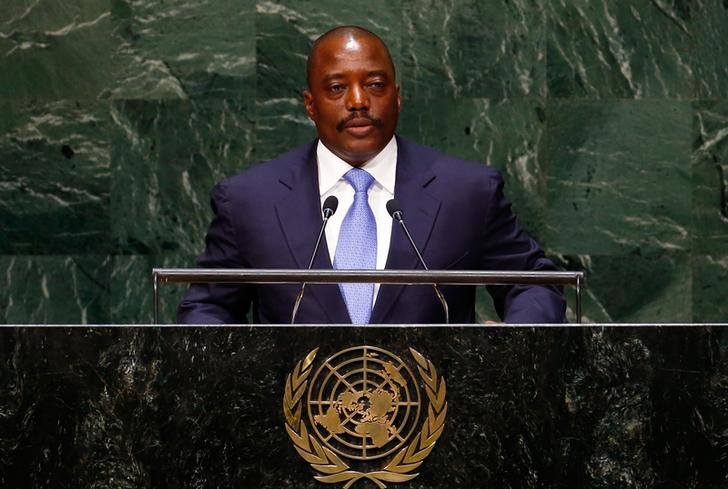By Aaron Ross and Amedee Mwarabu Kiboko
KINSHASA (Reuters) - The parliament of Democratic Republic of Congo is considering offering additional protection from prosecution to former leaders, a move aimed at encouraging President Joseph Kabila not to try to stay in power when his final term ends next year.
Kabila, who became president in 2001 and won disputed elections in 2006 and 2011, is barred by the constitution from running for a third term in office in November next year.
But he has refused to comment publicly on his political future and critics accuse him of aiming to cling to power.
Congo, Africa's biggest copper producer which experienced decades of autocratic rule and war following independence from Belgium in 1960, has never undergone a peaceful transition of power.
Under the proposed law, a draft of which was seen by Reuters, former presidents and their aides will not be liable for arrest for common law violations committed while they exercised their presidential functions.
The bill's author, opposition deputy Modeste Mutinga, wrote in a note to parliament that the prospect of material loss and prosecution "often awakens an instinct for the conservation of power by any illegal means and constitutional chicanery."
Only former presidents who came to power legally and left in accordance with the constitution would qualify for the law's protection.
Congo's constitution already confers broad immunity from prosecution for ex-presidents, who are considered senators for life.
But Mutinga told Reuters that the constitution does not go far enough. His proposal, he said, also provided for bodyguards for ex-presidents and increases in pension.
It did not, however, provide for immunity from prosecution for war crimes or crimes against humanity. Human rights groups have accused Kabila's allies and security forces of violations including murders and kidnappings of political opponents.
The proposal is one of several efforts to reassure Kabila about his post-presidency fate.
Government spokesman Lambert Mende has said the president intends to respect the constitution but his allies have recently proposed delaying elections up to four years to clean up voter rolls.
Mutinga himself cast doubt on the bill's prospects, saying many of his colleagues were too frightened to discuss it.

Senators from the majority contacted by Reuters said the proposal was being considered by a commission named last week but declined to comment further.